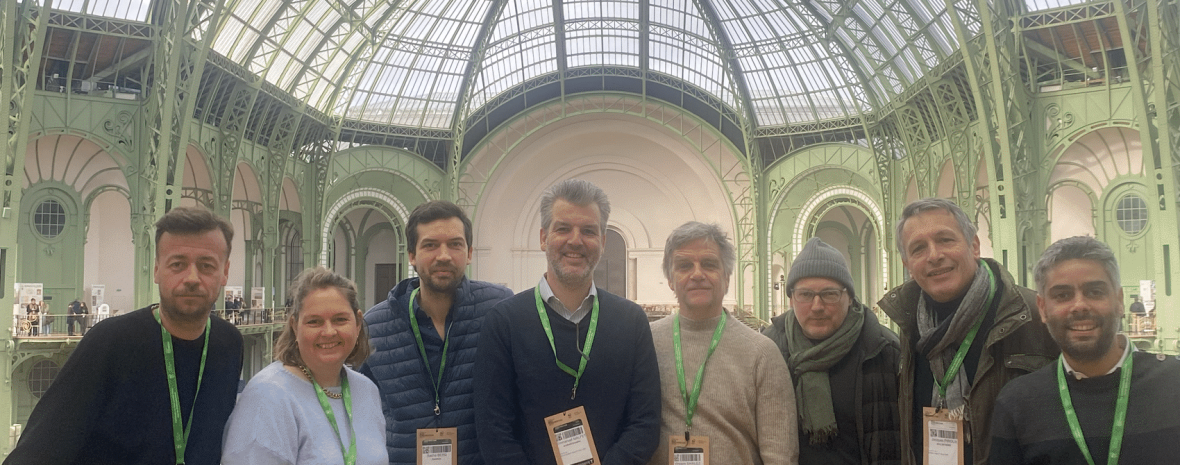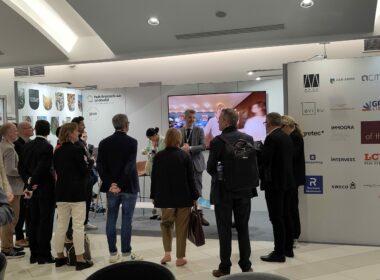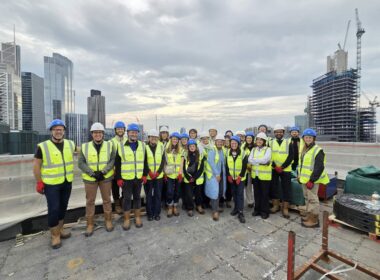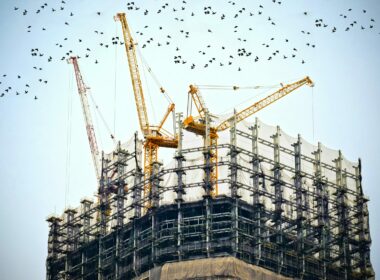The International Wood Construction Forum (FBC) took place at the Grand Palais in Paris and brought together the main players in the wood and bio-based materials sector. ecobuild.brussels was present together with four cluster members: BE CAMBIUM, Ecologe, citydev.brussels and A2RC.
This edition highlighted the challenges and opportunities associated with the integration of wood into sustainable construction, confirming its essential role in the ecological transition and in architectural innovation.
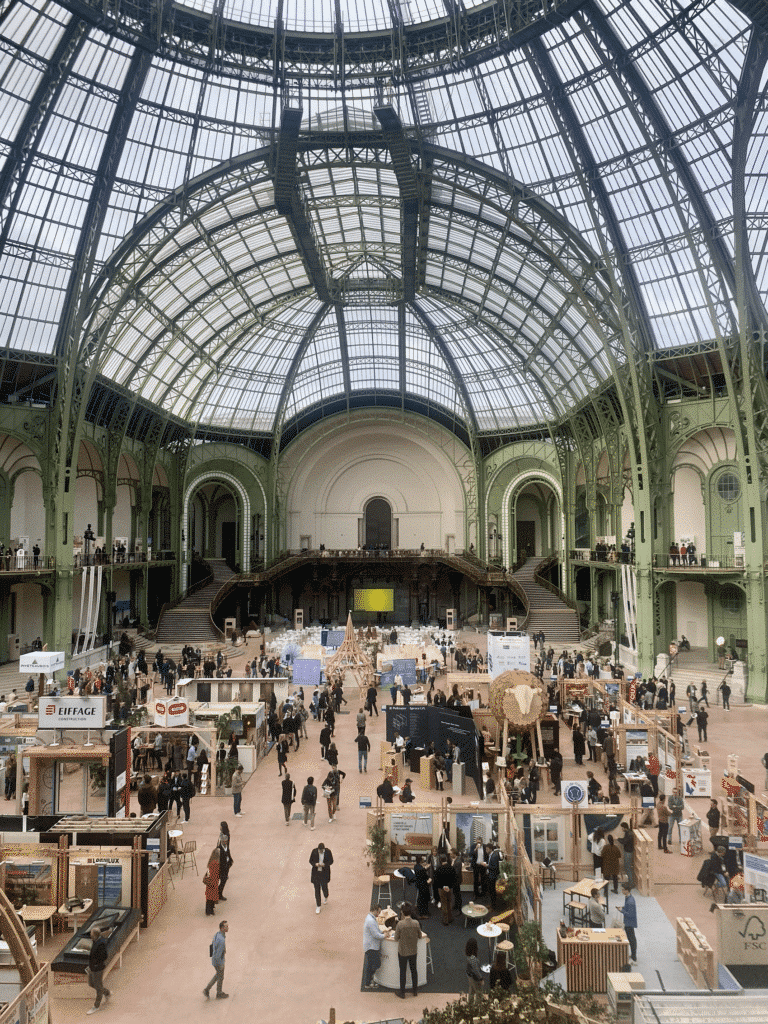
Wood, a key lever for the ecological transition
When the Forum opened, the “2050 Climate Strategy” conference emphasised that the wood industry plays a central role in the transition to a low-carbon economy. Today, the construction sector is responsible for almost 40% of global CO₂ emissions. In view of this situation, the development of timber construction appears to be a solution.
Three main areas were identified:
- sustainable forest management: there must be a balance between wood exploitation and the preservation of forest resources. Responsible management not only guarantees a stable supply of wood but also maintains the role of forests in carbon capture and biodiversity preservation.
- incentive regulations: experts such as Guillaume Meunier (IFPEB) advocated for the integration of wood into new building standards, encouraging its use in low-carbon housing and public infrastructure.
- innovation and circularity: the future of wood requires better waste recovery, the reuse of materials and the development of industrialised construction systems to reduce the carbon impact of buildings.
In a video message, the Minister for the Ecological Transition, Agnès Pannier-Runacher, reaffirmed the French government’s commitment to:
- develop local channels and encourage the use of wood from sustainably managed forests.
- accelerate innovation in bio-based materials to achieve carbon neutrality by 2050.
- support companies in the sector in their ecological transformation.
There was a clear consensus that wood is a key ally in the ecological transition, but its large-scale adoption requires effective coordination between public players, industry and architects.
Wood and bio-based architecture at the heart of the discussion
The use of wood in contemporary architecture is experiencing remarkable growth in Europe. Several projects were presented, illustrating the new possibilities offered by this material, in terms of both sustainability and architectural flexibility.
W.A.V.E. project ‘Grande Région’ – Inspiring cross-border cooperation
This project involves France, Belgium and Luxembourg in a dynamic endeavour that aims to:
- promote the use of local wood in construction, thus reducing the carbon footprint associated with imports.
- encourage short circuits and promote the relocation of expertise related to bio-based materials.
- create synergy between architects, engineers and industrialists to accelerate innovation.
Key speakers: Caroline Holz (Luxinnovation, Luxembourg), Aurélia Perry (Fibois Grand Est, France), Justine Coucharière (CAP Construction, Belgium).
The Innovationsfabrik in Heilbronn
Presented by Felix Waechter (Waechter + Waechter Architekten, Germany), this building is an example of tertiary wooden construction:
- an all-wood design using bio-based materials for a minimal carbon footprint.
- an efficient energy approach, incorporating heat recovery solutions and smart ventilation.
- a modular and scalable model, allowing the reuse of end-of-life materials.
This project illustrates the capacity of wood to meet the modern requirements of flexibility, energy performance and innovative architecture.
The Maison du Bois in Sursee (Switzerland)
Presented by Pirmin Jung, this project highlights the advantages of a building constructed entirely from local wood:
- a circular design: every element of the building can be dismantled and reused.
- advanced energy autonomy: photovoltaic panels, storage batteries, heat pumps and smart energy management.
- careful architectural integration, demonstrating that aesthetics and sustainability can go hand in hand.
A key lesson: today, wooden architecture is a practical and effective response to climate challenges. Thanks to technical progress and the integration of renewable energy, these projects prove that wood has a future in the city of tomorrow.
Focus on the innovations identified
The Forum was also an opportunity to discover technological solutions that facilitate and optimise the use of wood in construction. Here are three examples:
- Ecogrid Cycléo by Ardemo: a suspended ceiling made from reused wood, modular, aesthetic and acoustic, the result of a partnership between Ardemo and Articonnex, a company specialising in the collection of building materials for reuse.
- Kaïdoboh by Sertelet: a construction system inspired by Japanese techniques, without the use of glue or chemicals, for a 100% natural approach.
- BAM System by RDIngenierie: a prefabricated wooden construction solution, incorporating digital technology to optimise precision and energy efficiency, and reduce deadlines. This system is particularly suited to adding height and extensions to existing buildings.
The first two solutions will be presented on our social media during the “Printemps du bois” festival.
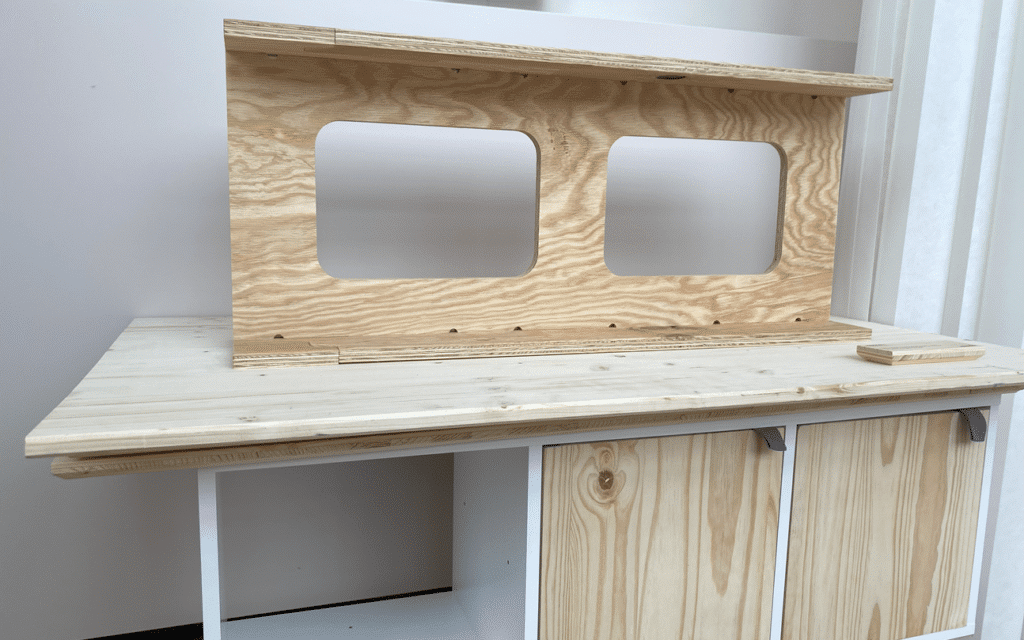
La Galerie de l’Architecture Bois/Biosourcée du XXIᵉ siècle: an inspiring showcase
Located on the first floor of the Grand Palais, this immersive exhibition offered a unique panorama of the most innovative architectural achievements in wood and bio-based materials. Models, photographs and detailed descriptions enabled visitors to discover projects aligned with the objectives of the 2050 Climate Strategy. They are inspiring projects for future study trips or site visits.
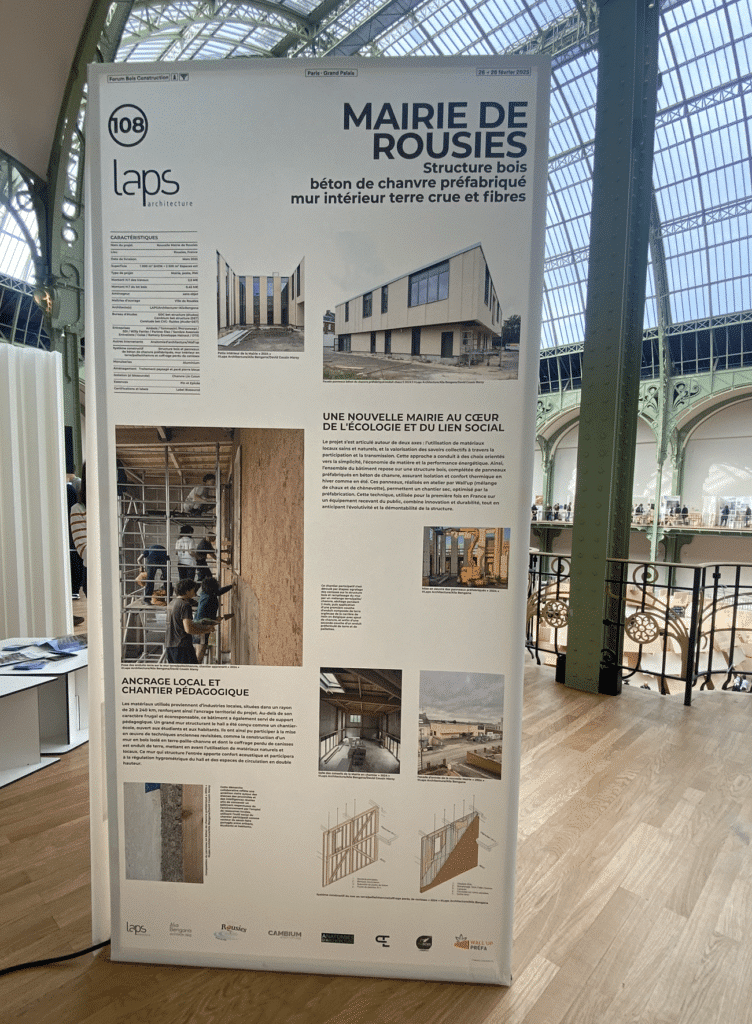
An event packed with connections and opportunities
The setting of the Grand Palais undoubtedly impressed participants, but the coherence of the organisation should also be recognised, with wooden stands and two auditoriums in temporary wooden structures. These two structures illustrated innovation and creativity in the use of wood for temporary constructions, while showcasing the skills of the designers and professionals involved in their creation.
In addition to the conferences and technical discoveries, the presence of ecobuild.brussels at FBC 2025 made it possible to:
- strengthen links with European players in the wood industry.
- create new opportunities for collaboration between our members and sector experts.
A shared lunch brought our members together to discuss their impressions and share their experiences. These discussions highlighted the need to continue investing in innovation, training and the promotion of wood as the material of choice.
The Wood Construction Forum 2025 was a real catalyst for projects and discussions on the future of wood construction. This made us want to highlight this theme in our actions and our communication during spring 2025. (link to the programme??)
See you in 2026?
